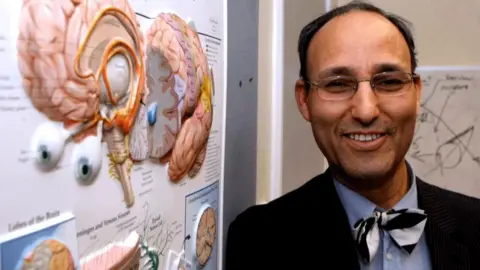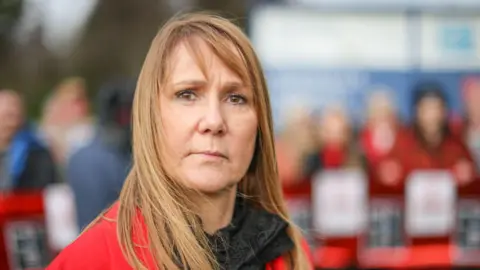Eljamel victims face two-year wait over charges
 BBC
BBCPatients who believe they were harmed by a disgraced brain surgeon will have to wait up to two years to find out whether he will face criminal charges.
Sam Eljamel left some with life-changing injuries while head of neurosurgery at Ninewells Hospital in Dundee.
Former patient Jules Rose, who has become a leading campaigner for victims, met with the Lord Advocate on Monday to discuss the long-running police probe.
She told BBC Scotland News that Dorothy Bain KC confirmed the surgeon's employers, NHS Tayside, were also being investigated for criminal charges.
Speaking after the two-hour meeting, Ms Rose said: "The Lord Advocate was very open and honest, and did say it's anticipated Operation Stringent would take another one-and-a-half to two years before any decision is made on criminality.
"What was welcoming to hear is that it's not just Eljamel being investigated, but it's also NHS Tayside."
Ms Rose said she was "very happy" at how the meeting had gone, and that Ms Bain agreed to provide a timeline for the investigation, in an attempt to speed up the probe.
She added: "They are seeking to appoint more medical expert witnesses to assist with the medical records of the patients, and that was very welcoming to hear."
It is believed Eljamel now works in Libya.
He was head of neurosurgery at Ninewells until December 2013, when he was suspended.
However a due diligence review into the health board found NHS Tayside placed him under indirect supervision in June 2013 rather than suspending him, meaning he was able to operate for a further six months.
It was during that period that he twice operated on Ms Rose.

The campaigner also said her requests to meet Police Scotland Chief Constable Jo Farrell had been met with "radio silence".
The Lord Advocate criticised the force in December due to the length of time the Eljamel probe has taken.
Ms Rose added that a response she received from an assistant chief constable had been "condescending."
The Crown Office said it recognised the distress and upset of those affected by delays in the investigation but that it would continue to work with officers gathering evidence from complainers and the health board.
A Police Scotland spokesperson said: "The senior investigating officer and their team are the best point of contact for victims as they are best placed to answer any questions or concerns.
"The chief constable has every trust in the inquiry team to progress this complex inquiry."
